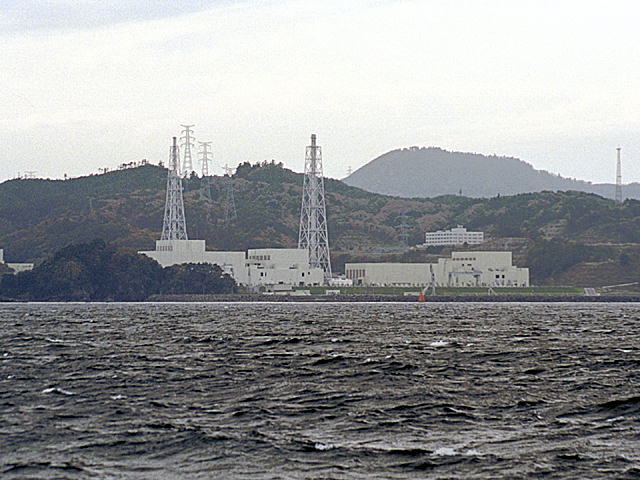Nuclear power in Japan

Prior to the 2011 Tōhoku earthquake and tsunami, Japan had generated 30% of its electrical power from nuclear reactors and planned to increase that share to 40%. Nuclear power energy was a national strategic priority in Japan. , of the 54 nuclear reactors in Japan, there were 42 operable reactors but only 9 reactors in 5 power plants were actually operating. A total of 24 reactors are scheduled for decommissioning or are in the process of being decommissioned. Others are in the process of being reactivated, or are undergoing modifications aimed to improve resiliency against natural disasters; Japan's 2030 energy goals posit that at least 33 will be reactivated by a later date.
Though all of Japan's nuclear reactors successfully withstood shaking from the Tohoku earthquake, flooding from the ensuing tsunami caused the failure of cooling systems at the Fukushima I Nuclear Power Plant on 11 March 2011. Japan's first-ever nuclear emergency was declared, and 140,000 residents within of the plant were evacuated.
All of Japan's nuclear plants were closed, or their operations were suspended for safety inspections. The last of Japan's fifty-four reactors (Tomari-3) went offline for maintenance on 5 May 2012, leaving Japan completely without nuclear-produced electrical power for the first time since 1970.
Problems in stabilizing the triple reactor meltdowns at Fukushima I nuclear plant hardened attitudes toward nuclear power. In June 2011, immediately after the Fukushima disaster, more than 80 percent of Japanese said they were anti-nuclear and distrusted government information on radiation, but ten years later, in March 2021, only 11 percent of Japanese said they wanted that nuclear energy generation to be discontinued immediately. Another 49 percent were asking for a gradual exit from nuclear energy. By October 2011, while there had been electricity shortages, Japan survived the summer of 2011 without the extensive blackouts that some had predicted, but at the price of casting doubts on Japan ambitious carbon emissions cuts. An energy white paper, approved by the Japanese Cabinet in October 2011, stated that "Public confidence in the safety of nuclear power was greatly damaged" by the Fukushima nuclear disaster, and called for a reduction in the nation's reliance on nuclear power.
Despite protests, on 1 July 2012 unit 3 of the Ōi Nuclear Power Plant was restarted.
A comprehensive assessment by international experts on the health risks associated with the Fukushima I nuclear power plant disaster concluded in 2013 that, for the general population inside and outside Japan, the predicted risks were low and no observable increases in cancer rates above baseline rates were anticipated.
In September 2013, Ōi units 3 and 4 went offline, making Japan again completely without nuclear-produced electrical power. On 11 August 2015, the Sendai Nuclear Power Plant was brought back online, followed by two units (3 and 4) of the Takahama Nuclear Power Plant on 29 January 2016. However, Unit 4 was shut down three days after restart due to an internal failure, and Unit 3 in March 2016 after the district court in Shiga prefecture issued an injunction to halt the operation of the Takahama Nuclear Power Plant. Of all the 54 nuclear reactors built prior to the Fukushima nuclear disaster, 43 of them remain operable but only a mere 9 reactors are currently in use. The Ministry of Economy, Trade and Industry said in 2017 that if the country is to meet its obligations under the Paris climate accord, then nuclear energy needs to make up between 20 and 22% of the nation's portfolio mix. 26 restart applications are now pending with an estimated 12 units to come back in service by 2025 and 18 by 2030.
The total cost of implementing safety measures, maintaining facilities, and decommissioning of commercially operated nuclear power plants in Japan is estimated at ¥13.46 trillion ($123 billion).
In February 2023, a survey by Asahi Shimbun showed that 51% of participants in Japan favored the restart of nuclear plant operations, with 42% opposed. Provided by Wikipedia